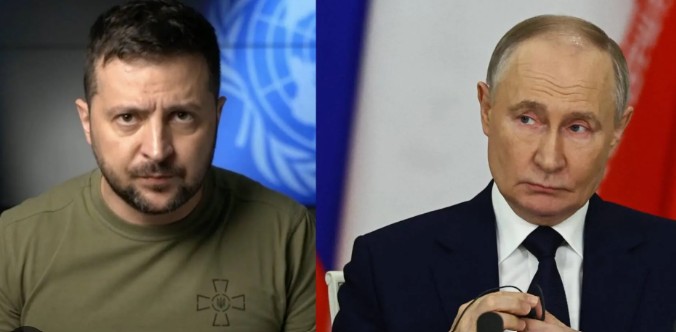Russia-Ukraine Ceasefire Talks: Zelensky Supports U.S. Proposal to Halt Strikes on Russian Energy Infrastructure

As Russia and the United States move forward with their 30-day ceasefire agreement, Ukrainian President Volodymyr Zelensky has expressed his strong support for the U.S. proposal to halt strikes on Russian energy infrastructure, signaling a willingness to explore diplomatic solutions amid the ongoing conflict.
In the aftermath of the phone conversation between Russian President Vladimir Putin and U.S. President Donald Trump, which led to the ceasefire agreement, President Zelensky emphasized the importance of reducing hostilities on both sides. Speaking to reporters, Zelensky welcomed the idea of halting attacks on critical energy infrastructure, acknowledging the potential for this move to de-escalate the violence and bring Ukraine and Russia closer to a peaceful resolution.
Zelensky’s Diplomatic Push
Following the announcement of the ceasefire, President Zelensky immediately reached out to key European leaders to discuss the potential implications of the ceasefire and the broader peace talks. According to Ukrainian officials, Zelensky spoke with French President Emmanuel Macron and German Chancellor Olaf Scholz both of whom have been instrumental in facilitating peace efforts in Ukraine.
During these conversations, Zelensky sought to ensure that Ukraine’s interests remained protected as the ceasefire negotiations unfold. He reiterated Ukraine’s commitment to defending its sovereignty while also recognizing the need for dialogue as part of the path toward a peaceful resolution.
A Shift Toward Diplomacy?
The U.S. proposal to halt strikes on Russian energy infrastructure marks a significant shift in the diplomatic landscape of the war. For months, both sides have engaged in relentless military campaigns, with energy infrastructure being a central focus of Russian airstrikes on Ukraine and reciprocal attacks on Russian energy facilities. The U.S. move to halt these attacks may represent an attempt to break the cycle of violence and pave the way for broader peace talks.
For Zelensky, this represents an opportunity to take a more measured approach while still maintaining Ukraine’s military readiness. “We have always sought peace through strength, but we are ready to explore all options that will protect our people and secure a lasting peace,” Zelensky stated in his remarks following the phone calls with Macron and Scholz.
Europe’s Role in Shaping Peace
Both Macron and Scholz have emphasized their commitment to supporting Ukraine’s sovereignty and security while also engaging with Russia in peace talks. As pivotal European allies, their involvement will be critical in shaping the trajectory of the ongoing ceasefire and potential peace negotiations. Macron, in particular, has been vocal about the need for a diplomatic solution that addresses both Ukrainian and Russian concerns.
Zelensky’s consultations with these leaders indicate that Europe remains a key player in the peace process, balancing Ukraine’s desire for full territorial integrity with the necessity of engaging in international talks with Russia.
What’s Next?
As the 30-day ceasefire begins, all eyes will be on the forthcoming peace talks. While the cessation of attacks on energy infrastructure is a positive sign, many questions remain about the broader terms of the ceasefire and whether both sides can reach a long-term solution.
International experts warn that the ceasefire is fragile and that any further escalation could derail the ongoing discussions. However, the continued involvement of European and U.S. leaders could help maintain momentum for negotiations.
For now, the world watches as leaders on both sides prepare for the next stage of talks, hoping that this moment of reduced violence can lead to a more permanent peace.
